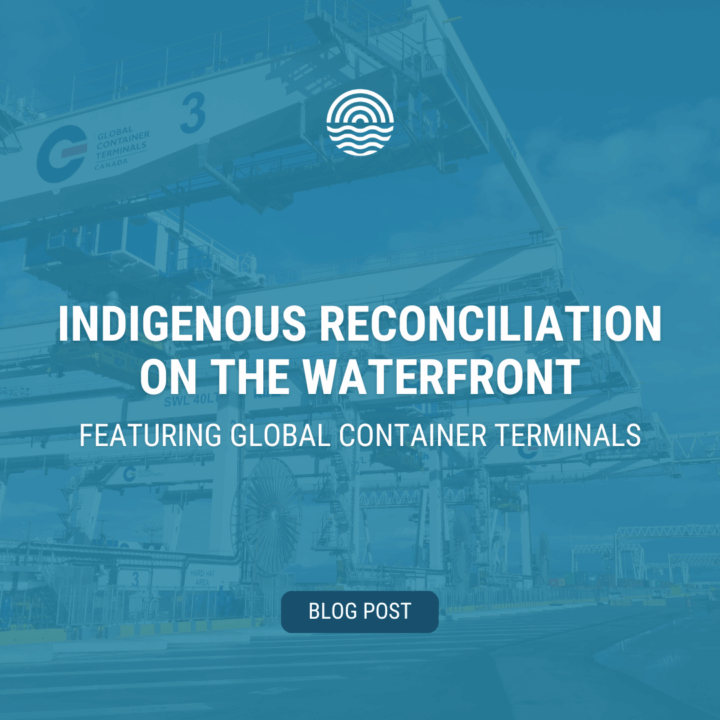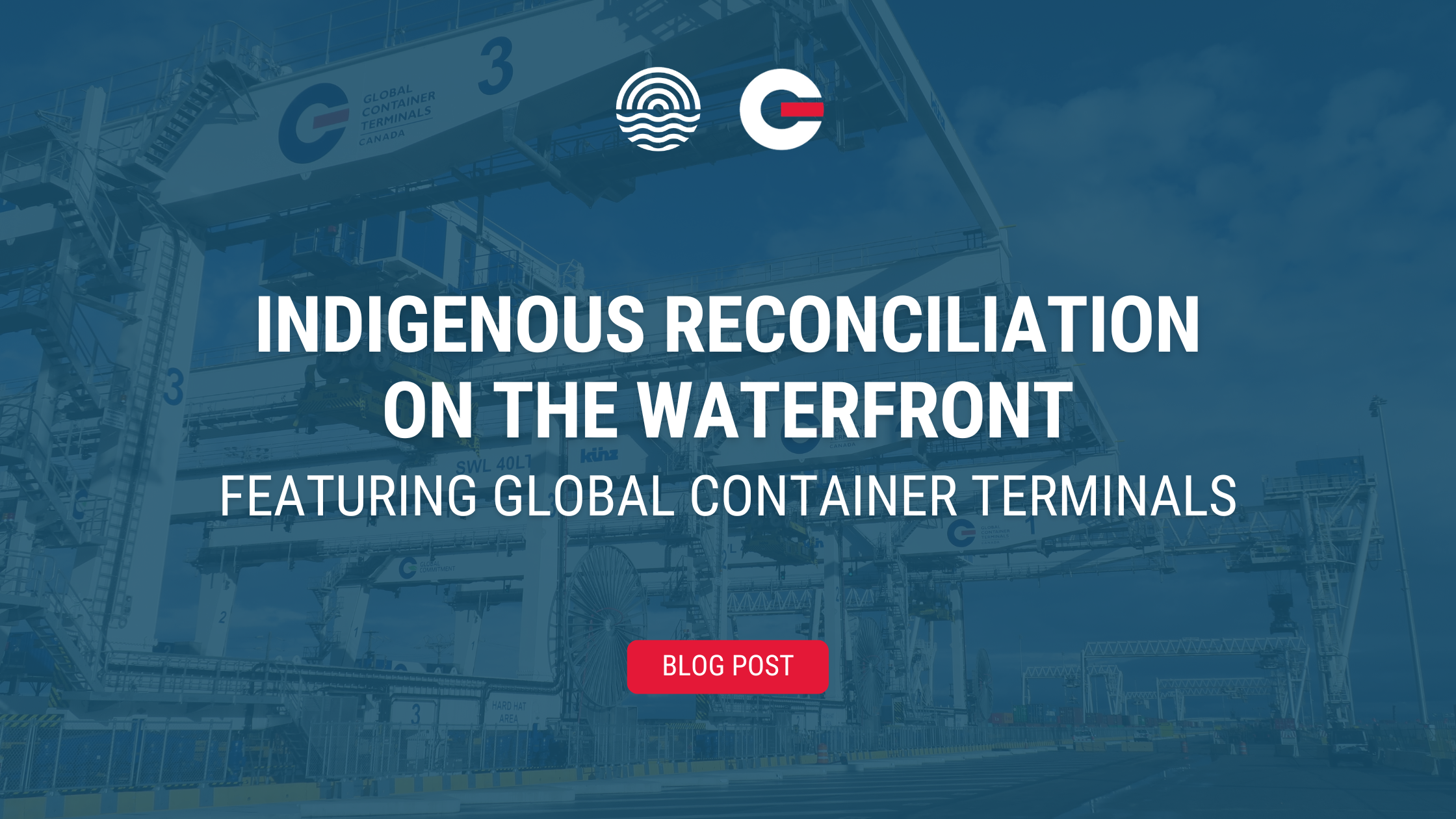
BLOG POST
Indigenous Reconciliation on the Waterfront: GCT’s Story of Collaboration and Impact
Reconciliation on the waterfront isn’t one thing — it’s many: art, culture, learning, shared history and broader career awareness and opportunities. In this piece, we’re excited to showcase GCT’s experience.
Through partnerships with Tsleil-Waututh and Tsawwassen First Nations, GCT Global Container Terminals (GCT) has embedded reconciliation into its operations by linking renewable fuel initiatives with Indigenous economic benefit. Alongside these efforts, GCT continues to support Indigenous youth through scholarships and industry education — demonstrating how reconciliation can be woven into both environmental, social, and operational impact.
RENEWABLE FUEL PARTNERSHIPS WITH INDIGENOUS NATIONS
In One of GCT’s most impactful initiatives is its renewable fuel program, launched in partnership with Tsleil-Waututh Nation and GCT’s Vanterm location, and Tsawwassen First Nation (TFN) and GCT’s Deltaport location. Through partnerships with GCT, Parkland Fuels and Nations allow GCT to integrate Indigenous economic benefit into its operations, while reducing emissions in the communities where GCT operates.
These dual-purpose initiatives reflect GCT’s commitment to both environmental stewardship and Indigenous economic reconciliation. The programs are a clear example of how reconciliation can be woven into day-to-day business decisions through actionable partnerships.
SCHOLARSHIPS AND EDUCATION
Additionally, GCT has maintained a scholarship program with Tsawwassen First Nation, which is now entering its fourth year. This initiative supports Indigenous youth pursuing post-secondary education, helping to expand pathways into trades, maritime careers, and beyond.
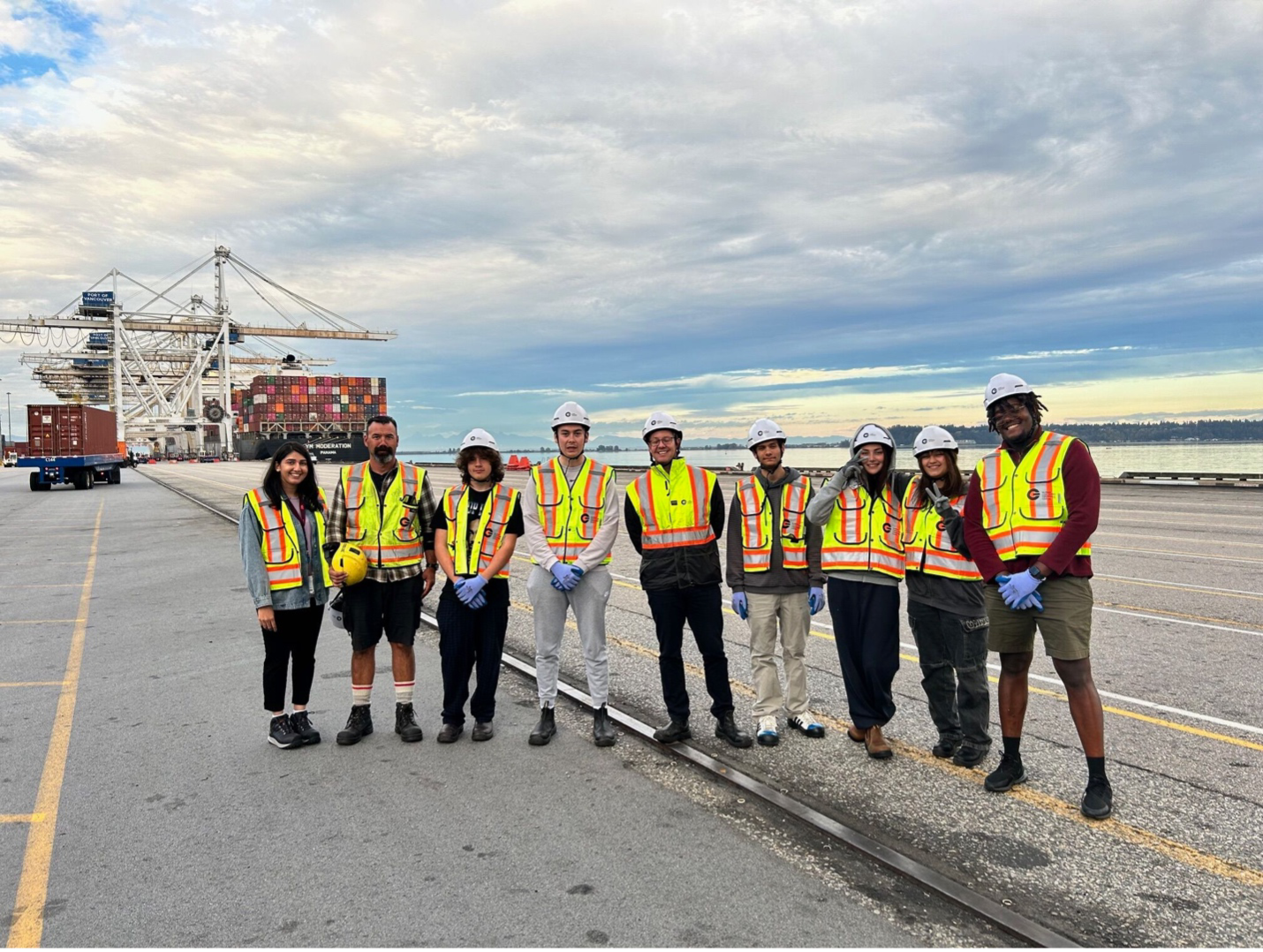
GCT also actively participates in industry-wide education efforts and continues to act on the principles outlined in its Indigenous Relations Policy, including team education. These programs offer staff and management opportunities to deepen their understanding of Indigenous history, rights, and reconciliation practices — reinforcing the importance of learning as a foundation for change and developing intercultural competency within GCT.
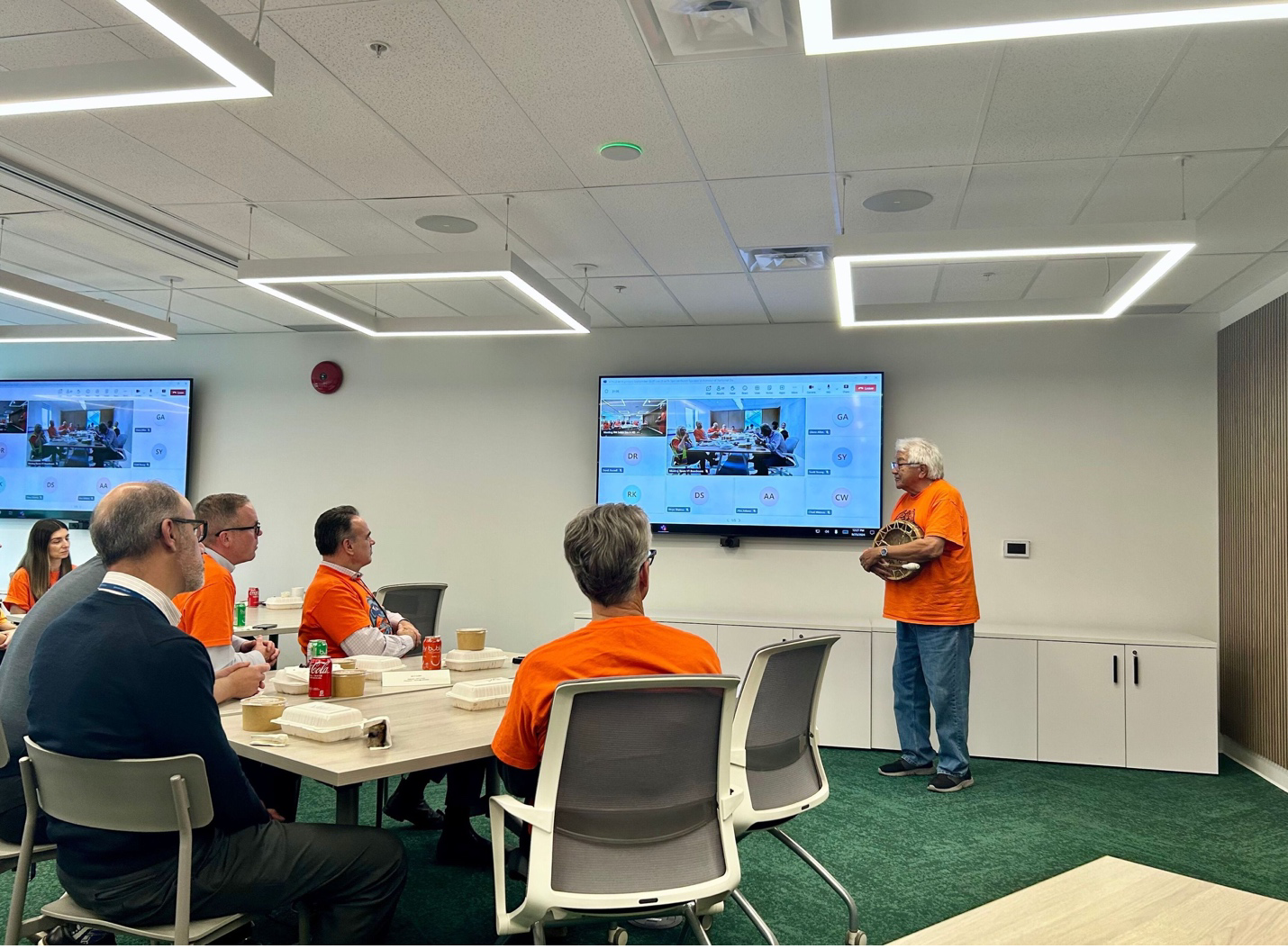
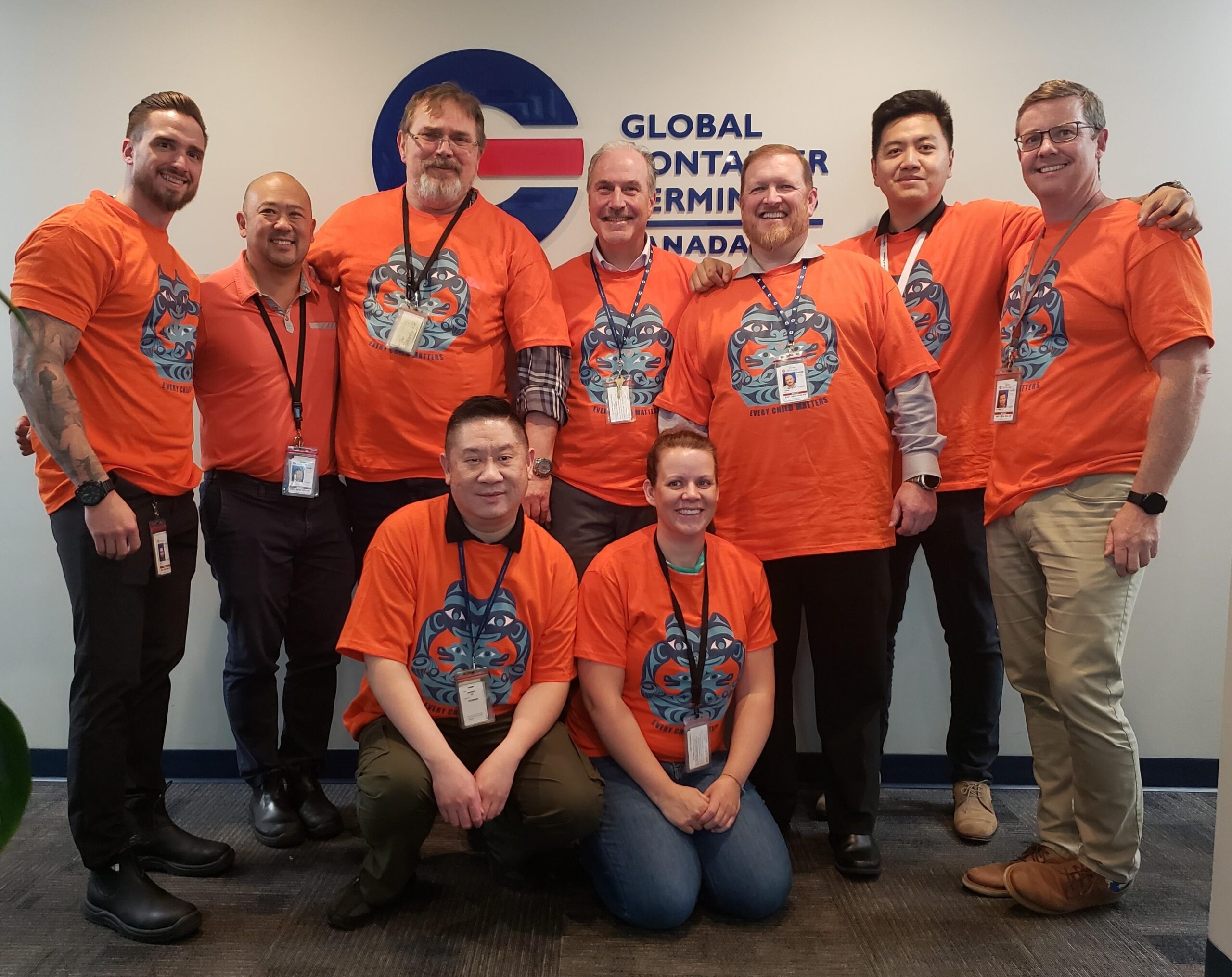
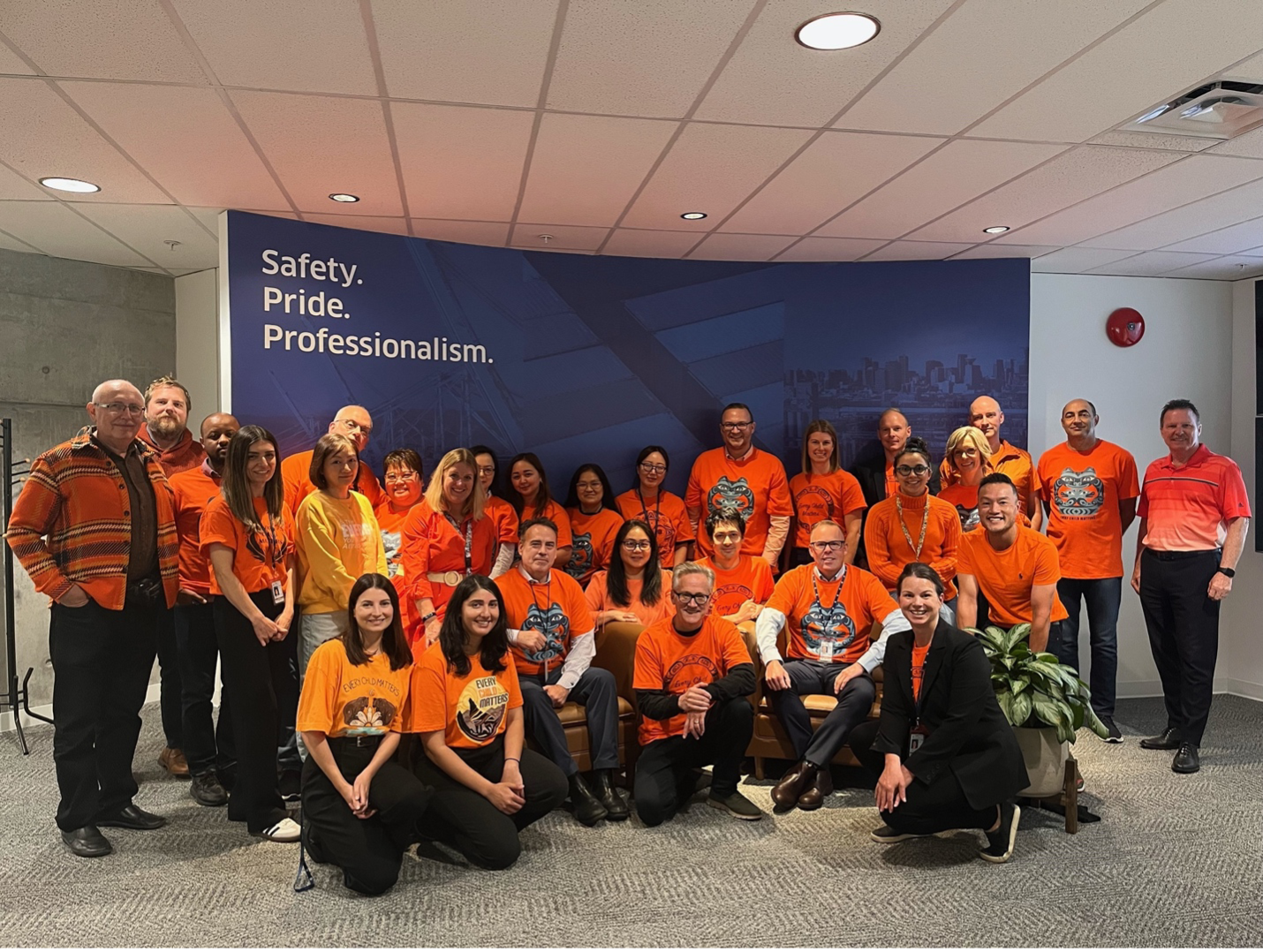
HONOURING CULTURE THROUGH ART
Reconciliation at GCT is not only reflected in programs and partnerships, but also in the way the company honours Indigenous culture through art.
GCT DELTAPORT
At GCT Deltaport, the Salish Sea Spirit House Post stands as a powerful reminder of stewardship and respect.
Crafted from red cedar by renowned Tsawwassen First Nation artist and carver Karl Morgan, the house post symbolizes the deep roots and traditional knowledge that shape the Tsawwassen community’s identity. It reflects a collective commitment to stewardship, safety, and conservation — values shared by both GCT Deltaport and Tsawwassen First Nation.
In Coast Salish traditions, house posts are raised to bring awareness to the land on which they stand. Positioned at GCT Deltaport’s distinctive location, the Salish Sea Spirit serves as a beacon, telling the story of two neighbours who are connected by shared respect for land, water, and community. It’s a visible expression of reconciliation and a reminder that relationships are strengthened not only through words and commitments, but also through symbols that endure across generations.
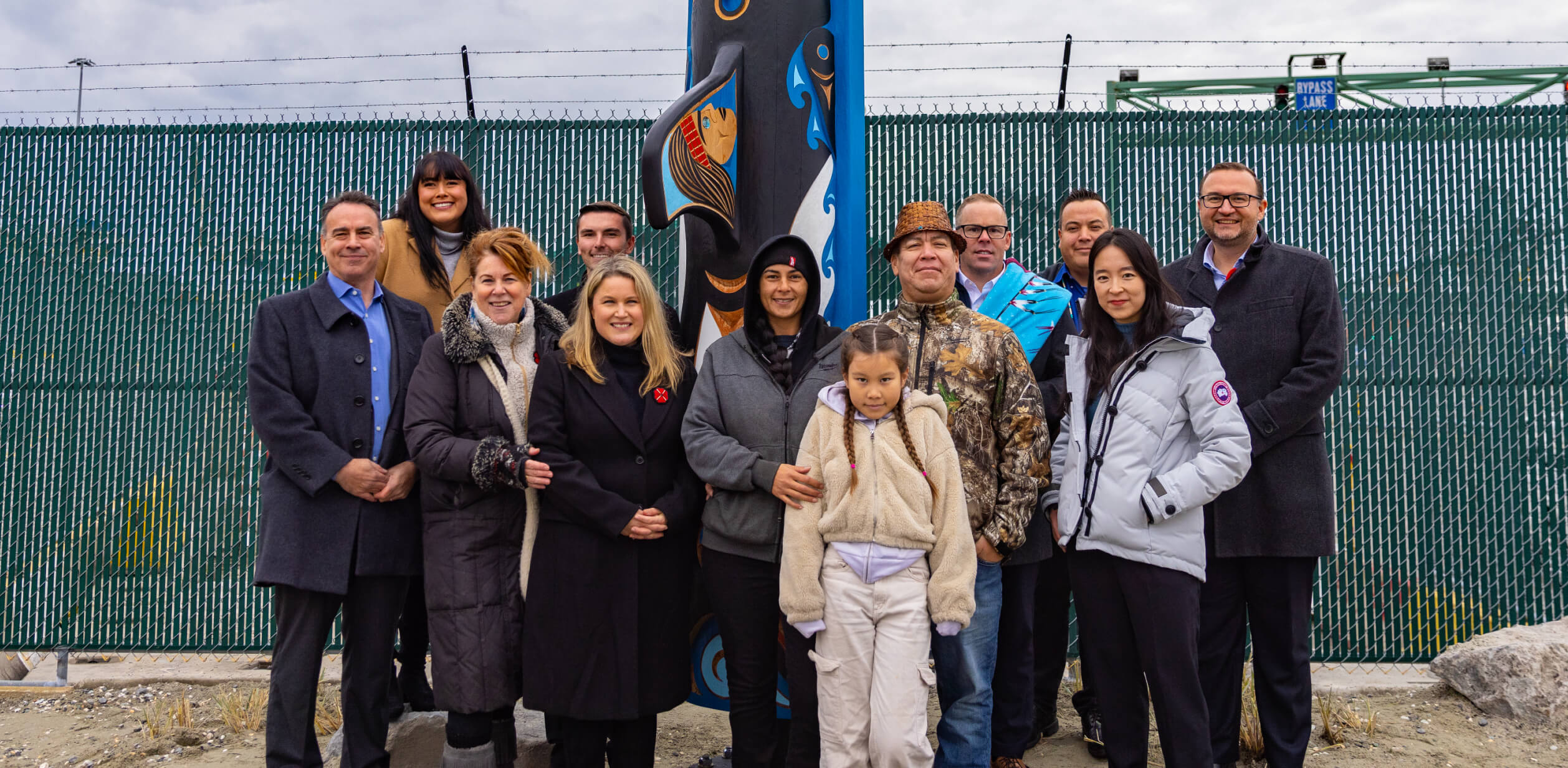
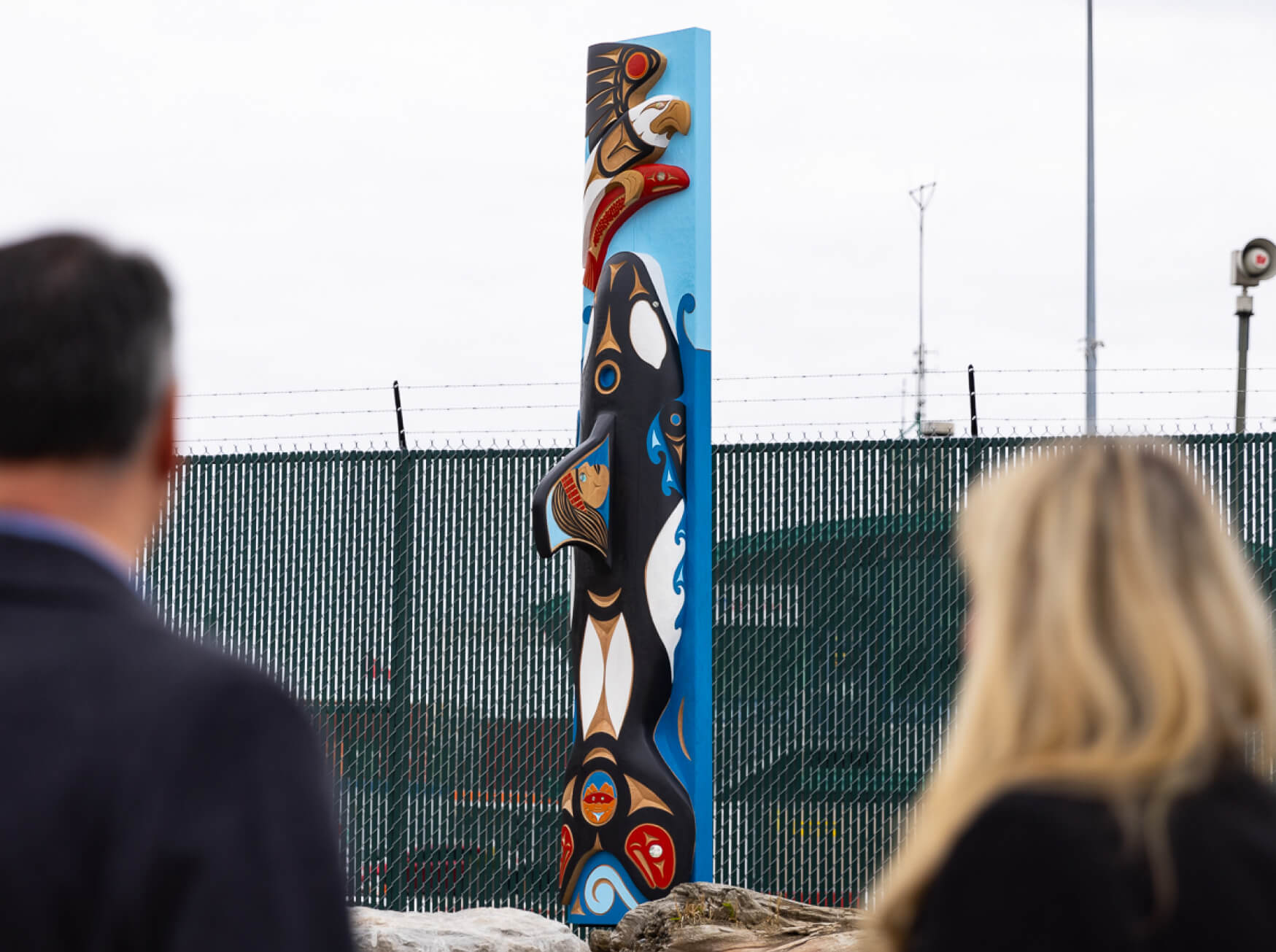
GCT VANTERM
At GCT Vanterm, the 50th anniversary commemorative logo by Squamish artist and Hereditary Chief Ian Campbell was commissioned to reflect the rich maritime trading heritage of the Coast Salish and celebrate shared values of stewardship and safety in Burrard Inlet. The orca and paddle design represents family, unity, and cooperation, reflecting the relationships formed through a shared journey between communities. Learn more about the artist and his design in the GCT Vanterm 50th Anniversary Commemorative Logo Reflection.
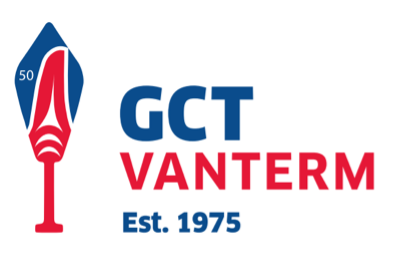
LOOKING AHEAD: DEEPENING IMPACT WITH CONSISTENT ACTION
Reconciliation takes shape in many ways: through partnerships that reduce emissions and share economic value, scholarships that open doors for youth, and cultural expressions that honour tradition and place.
As reconciliation continues to evolve across the waterfront, GCT’s work reminds us that progress is about consistent, respectful action.
Together, their efforts reflect a holistic approach — one that balances education with engagement, economic inclusion with environmental care, and communication with partnership to advance reconciliation in tangible, lasting ways.

